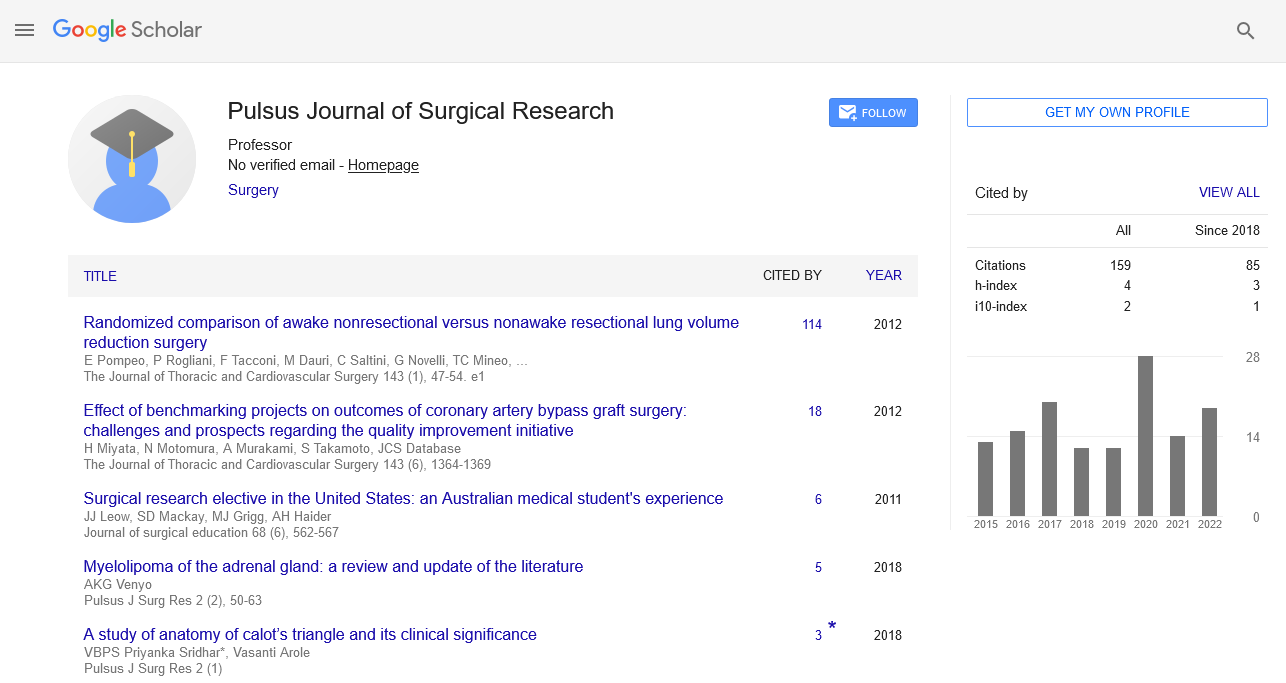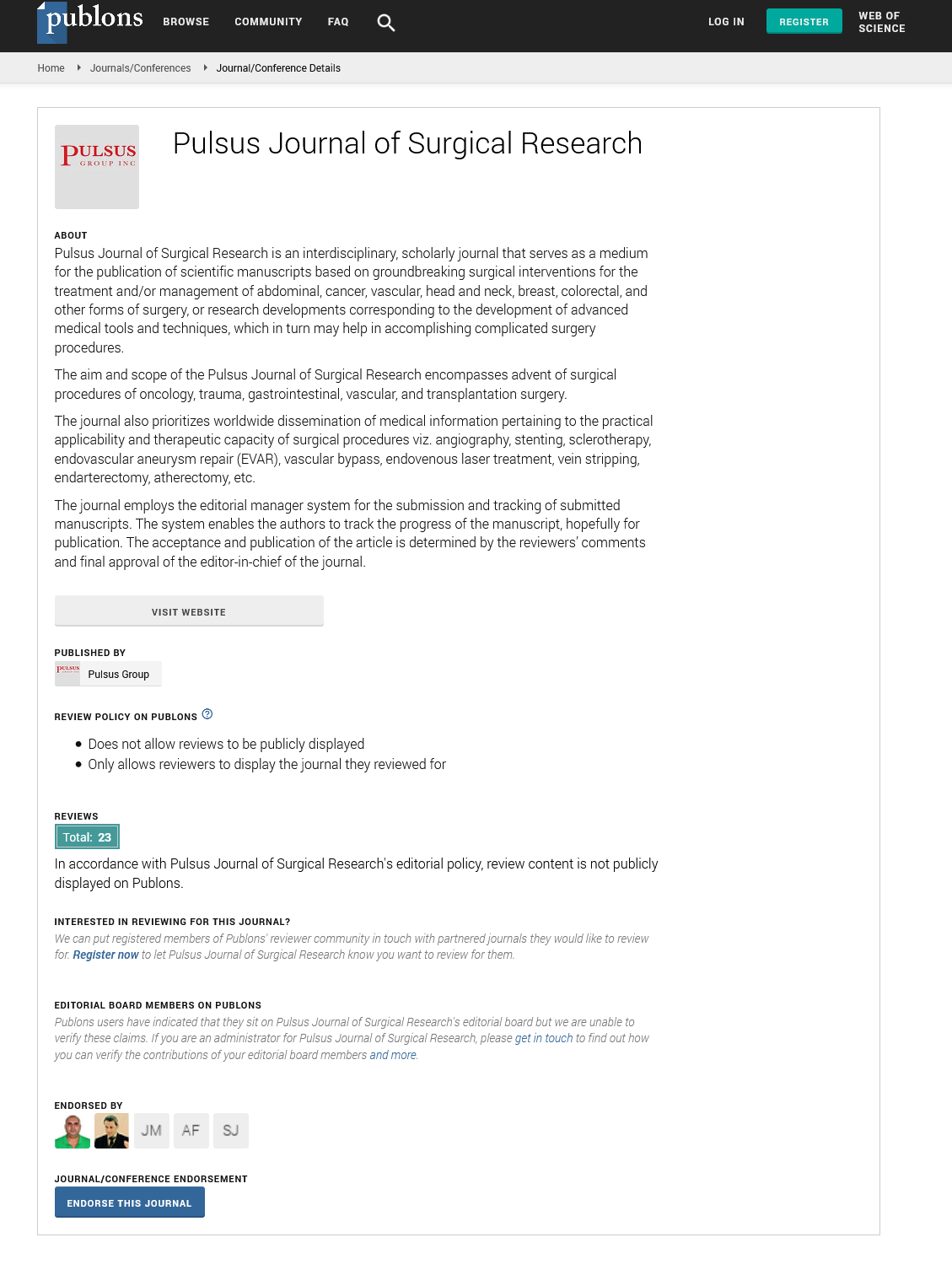
Sign up for email alert when new content gets added: Sign up
Abstract
Risk factors and indicators for prostate cancer
Author(s): Anatoly Pinchuk*The second most common cancer diagnosis for males is prostate cancer, which more frequently affects elderly people. In environments with limited resources, this disease is frequently not discovered until it has progressed to an advanced stage, leaving patients with a terrible prognosis. This study sought to discover variables associated with aggressive prostate cancer and a poor prognosis in prostate cancer patients at a single facility in Douala, Cameroon. We conducted a retrospective analysis at the Centre medico-chirurgical d'urologie in Douala, Cameroon, between 2015 and 2020. We included 203 patients, aged 41 to 85, who had prostate cancer identified by histopathology following either a prostate biopsy or a laparoscopic prostatectomy. To determine parameters linked to prostate cancer aggressiveness and patient outcomes, data were analysed using Epi-info 7 and logistic regression analyses were carried out (survival or mortality). The average age of the participants in our study was 64.76 years+7.48 years. A significant family history of prostate cancer affected ten of the individuals. In 61.58% of the patients, symptoms of the lower urinary tract were evident. 100 individuals were anemic, 36 patients had aggressive manifestations of the disease, and all patients had blood Prostate-Specific Antigen (PSA) values greater than 4 ng/ml. Digital Rectal Examination (DRE) results for 88 subjects were astonishing. Trans Rectal Ultrasonography (TRUS) measurements showed that the median prostate volume individuals passed away while being followed up on, and 59 patients had abnormal prostate echo structures. Aggressive prostate cancer was highly correlated with paraplegia, as well as occupations requiring unskilled work. Prostate cancer aggressiveness and patient outcomes were substantially correlated with the presence of lymphedema, aberrant DRE findings, anemia, enlarged prostate glands (prostate volume>50 ml), and abnormal prostatic echo structures. A significant public health issue in Cameroon is the late detection of prostate cancer due to the complications and dismal outlook of the disease at an advanced stage. The identification of these characteristics may help doctors make better therapeutic decisions for their patients. Prostate cancer aggression and a poor prognosis are related to specific clinical, biochemical, and imaging markers.
Full-Text | PDF





